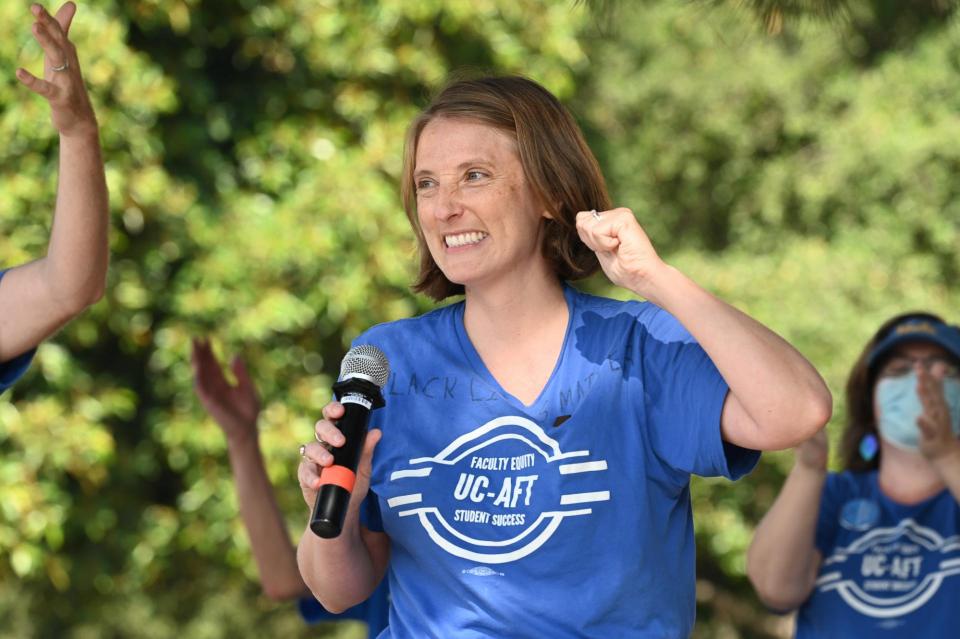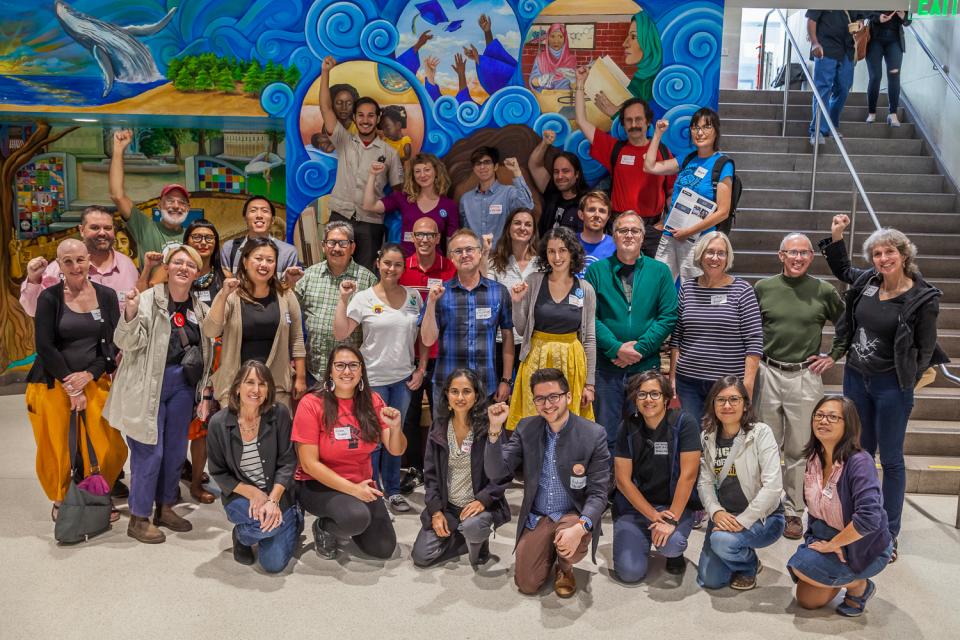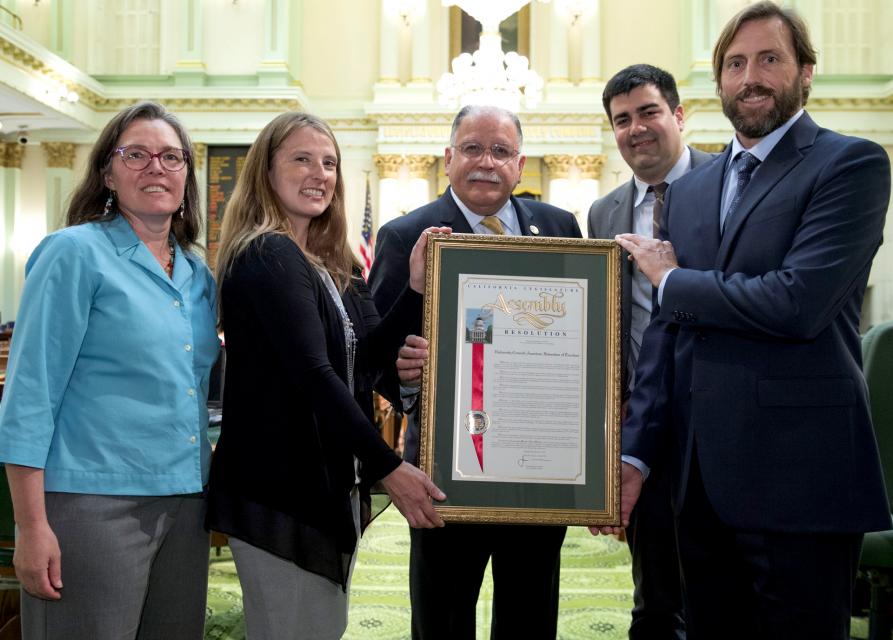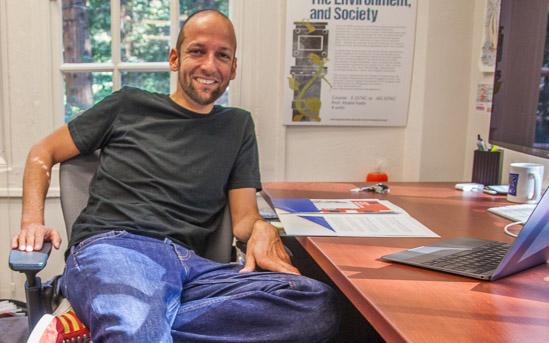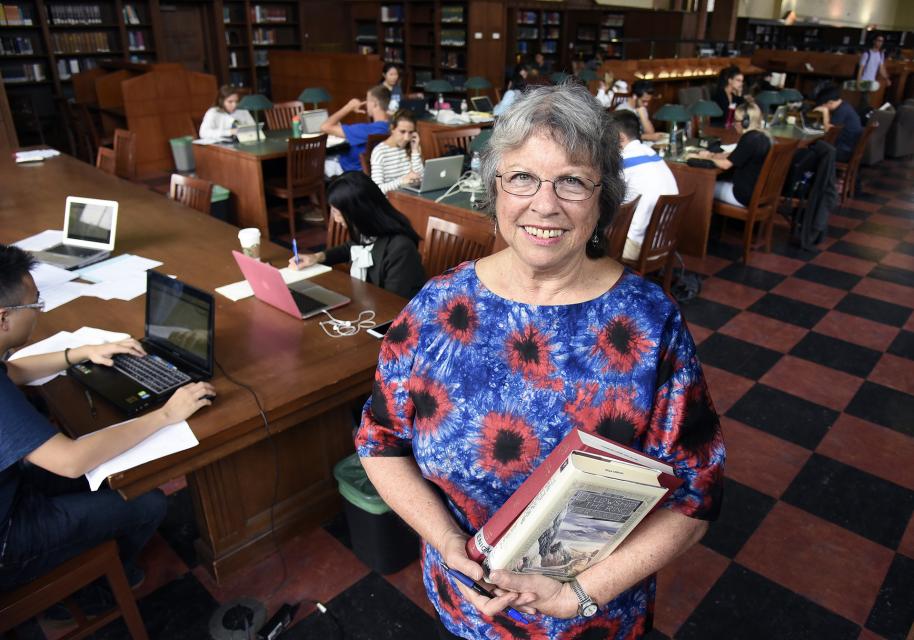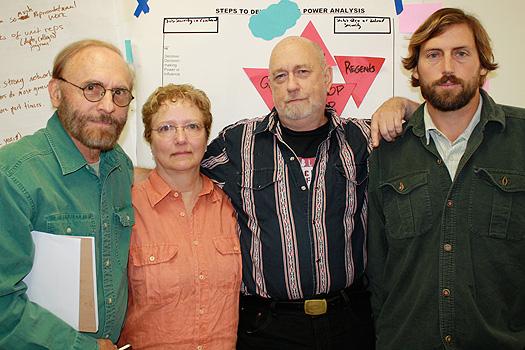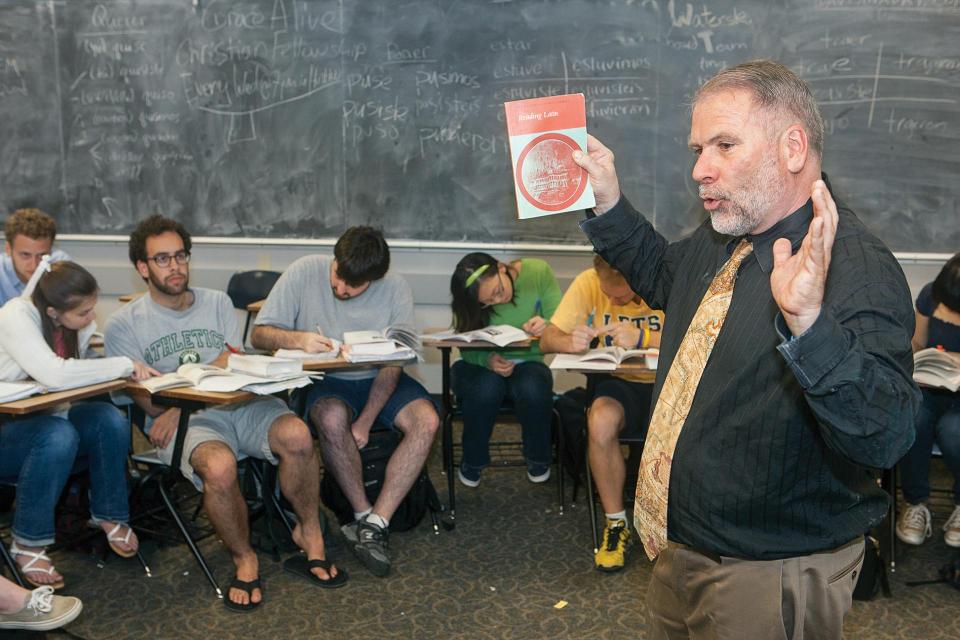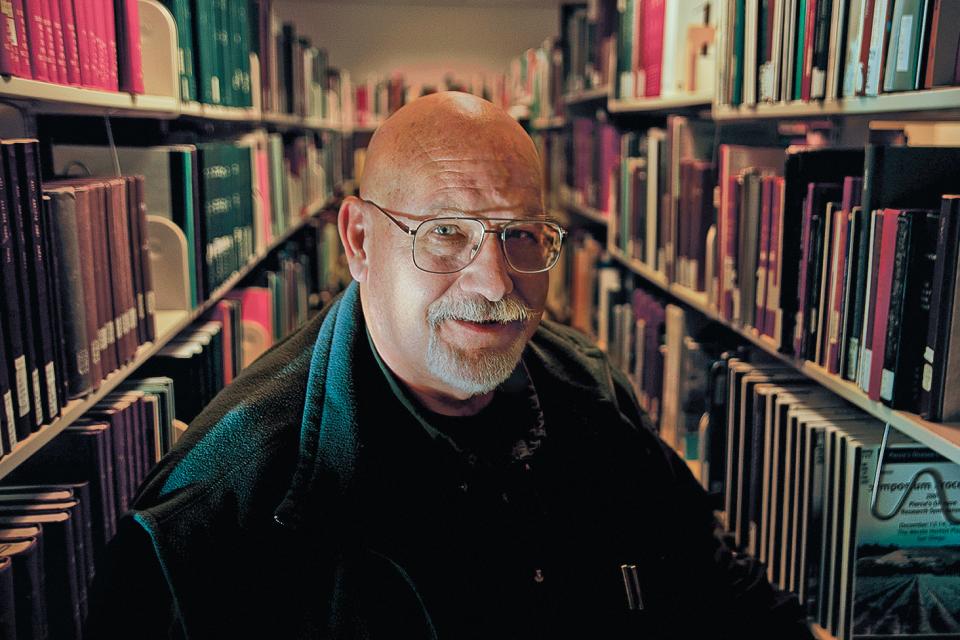Retrospective: Organizing to win in tumultuous times
Reflecting on five years of union gains for UC librarians and lecturers
By Mia McIver, President, University Council-AFT
When I was elected president of University Council-AFT in 2017, I never could have predicted that the next five years would be as tumultuous as they turned out to be. I also could never have foreseen how our union of University of California lecturers and librarians would organize, build power, win contracts, and accomplish gains that far exceeded my hopes and expectations.
Finding “common ground” in higher education
Campus Equity Week conference brings together contingent faculty from all higher ed systems
Members, officers, and activists from higher education unions throughout California came together for a full day during Campus Equity Week to chart a strategy for defending public higher education. They denounced especially the way education institutions, under corporate pressure, increasingly rely on contingent instructors while treating them as outsiders.
UC-AFT recognized on Assembly Floor
Assemblyman Jose Medina, D-Riverside, Chair of the Higher Education Committee, recognized the University Council-AFT on the Assembly Floor during UC-AFT’s first group lobby day at the State Capitol on April 1.
Building a member-driven union at the university
An effective site rep structure reaches lecturers, librarians where they work
At UC Berkeley, 16 lecturer site representatives are fanning out across the sprawling campus. In Davis, the union is fielding at least 15. In both places, the effort to meet the challenge of a new era in public sector labor relations is part of an even larger move to change the culture of the union.
Librarians negotiate professional development and salary
Entry-level pay lower than at CSU and the community colleges
The University Council-AFT is negotiating with UC over two key articles of its contract covering librarians — salaries and professional development funds — says Axel Borg, distinguished wine and food science bibliographer at UC Davis. He sums up the common concerns between the union and the university as competitiveness, compression, and consistency.
Librarian masters digital tools for workplace and union
Carla Arbagey creates infographics to illustrate workload
UC Riverside librarian Carla Arbagey says, “Technology is like air to me.” It is essential in the library, where she integrates systems and tracks information on more than 3.4 million items. She is the winner of the 2014 Technology New Leader Award from the California Library Association, and a self-described “type-A personality” who likes things to be tidy, organized, and efficient.
UCLA professor leads mobilization of lecturers and librarians
Statewide campaign builds on established strength in campus locals
Goetz Wolff has taught at UCLA for more than 20 years, but was generally more involved with Southern California’s vibrant labor movement than with the union on his job. Wolff, for example, earned high praise for his six years as research director at the Los Angeles County Federation of Labor, but barely knew the ins and outs of the University Council-AFT.
Reference librarians meet complex queries with a human touch
Highly skilled professionals imperiled by administrative cost-cutting, online chat
“We no longer have a visible reference desk in our two main libraries,” reports Miki Goral, a UCLA librarian of 43 years. “Students first have to go to the circulation desk. If the student working there thinks they need to talk to a reference librarian, they often refer them to a 24/7 online chat, which is staffed by a UC librarian only during certain hours.
Otherwise they could be chatting with a librarian in New York, or even Australia. Plus chatting can take 40 minutes to do what you can do in 5 if you’re actually talking.”
Classics lecturer maintains classic ideas about unions
New local president Rundin says union makes lecturer job worth having
Classics lecturer John Rundin feels privileged to pass on to another generation the cultural treasures that were given to him by the previous generation. The teacher of Latin and ancient Greek is one of two recipients of this year’s Award for Excellence in Teaching from the UC Davis Academic Federation.
“I live my job, love what I do, and I love my students,” says Rundin. “It is a great honor.”
Honored academic Axel Borg a driving force at UC Davis
Agricultural sciences librarian excels at organizing information and colleagues
Long-time UC Davis reference librarian Axel Borg wears so many hats that he received the James H. Meyer Distinguished Achievement Award from the Academic Federation last year. Borg has served on three of its committees, including the one which names the Federation president each year.

